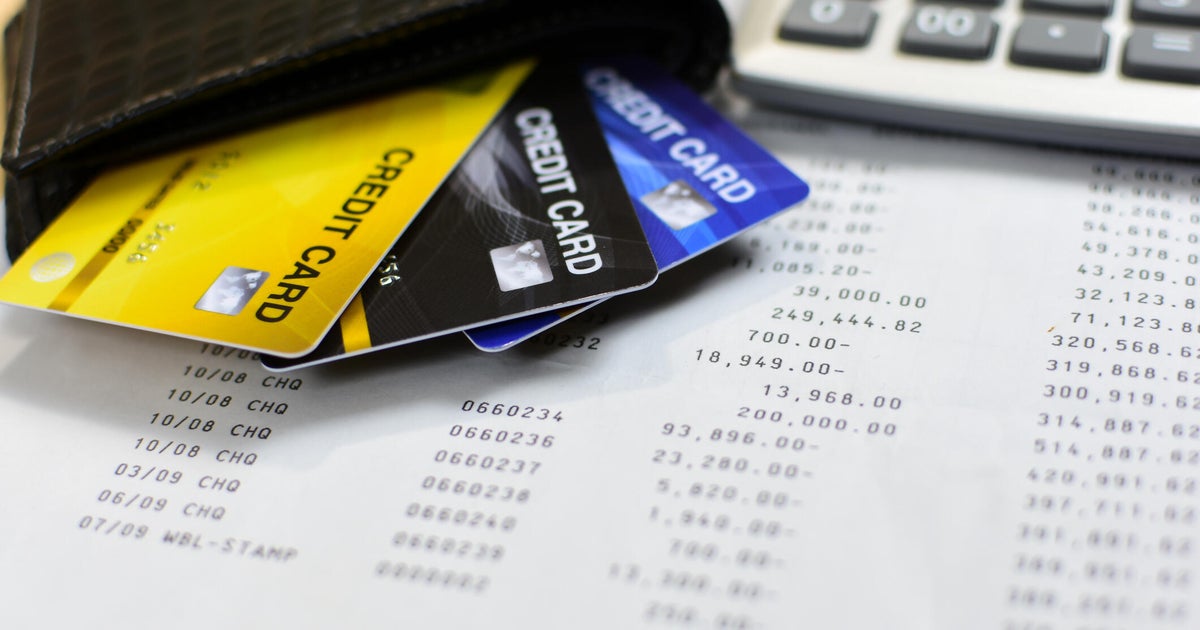Dealing with expensive credit card debt? 5 ways to negotiate a settlement
In today's challenging economic landscape, an increasing number of Americans are grappling with financial difficulties. And, one major issue that's contributing to it is high inflation. The latest inflation report shows that inflation is hovering near 3.3% currently, which is driving up the cost of everyday essentials and hurting people's budgets. Elevated interest rates are also making borrowing more expensive across the board. These and the other economic pressures that are looming have, in turn, led many households to turn to credit cards as a temporary lifeline to make ends meet.
But while credit cards can provide short-term relief, they often come with a hefty price tag in the form of high interest rates and compound interest charges. As a result, what starts as a temporary solution can quickly spiral into overwhelming debt, leaving many cardholders struggling to keep up with the minimum credit card payments, let alone making a dent in their principal balances.
If you find yourself overwhelmed by credit card debt, it's important to know that there may be options available to help you regain control of your finances. One such option is negotiating a settlement with your credit card companies to pay less than what you owe on your card balances. And, there are a couple of different ways you can do that.
Find out more about your debt settlement and debt relief options here.
5 ways to negotiate a credit card debt settlement
Here are a few of the ways you can approach settling your credit card debt:
Take the do-it-yourself approach
Taking matters into your own hands can be an effective way to settle your credit card debt, provided you have the time, patience and negotiation skills to pull it off. Here's how to approach a do-it-yourself (DIY) debt settlement:
- Assess your financial situation: Take a thorough inventory of your debts, income and expenses to determine how much you can realistically offer as a settlement.
- Save a lump sum: Most creditors prefer a one-time payment rather than extended payment plans. Aim to save 30% to 50% of your total debt before starting the negotiation process so you are prepared to pay promptly if a settlement agreement is reached.
- Contact your creditors: Reach out to each credit card company's debt settlement or hardship department. Explain your financial situation and express your desire to settle the debt.
- Make an offer: Start with a low offer and be prepared to negotiate upward if necessary, as in many cases, it's unlikely that the card issuer or debt collector will accept an offer under 30%. However, there's always a chance that they may, so starting at the bottom could benefit you.
- Get the agreement in writing: Once you reach a settlement, insist on receiving the terms in writing before making any payments.
- Pay the settled amount: Follow through with the agreed-upon payment to close the account.
Learn more about how a debt relief company can help you settle your debt.
Have a debt relief company assist in the process
If the DIY approach seems daunting, you might consider enlisting the help of a debt relief company to navigate the credit card debt settlement process. These companies can be a good ally to have in this process because they specialize in negotiating with creditors on your behalf.
Before you take this approach, though, here's what you should do:
- Thoroughly research your options: Look for reputable companies with a track record of successful settlements. Check reviews and ratings before enrolling in any programs.
- Understand the fees: Debt relief companies typically charge a percentage of the debt they help you settle, usually between 15% to 25% of the enrolled debt.
- Be aware of the risks: Working with a debt relief company may negatively impact your credit score, as you'll likely stop making payments to your creditors while saving for a settlement.
- Consider the timeline: The debt settlement process through a company can take between two to four years on average.
- Know your rights: Familiarize yourself with the regulations on debt relief services to protect yourself from potential scams.
Enroll in a hardship program
Some credit card issuers offer credit card hardship programs for customers experiencing financial difficulties. These programs won't necessarily settle your card debts in full, but they do provide short-term relief in the form of reduced interest rates, waived fees or lower minimum payments — which can reduce what you owe and make it easier for you to get rid of your credit card debt.
To enroll, you typically need to contact your issuer and inquire about any available hardship programs. You typically need to qualify to get this type of relief, so be prepared to provide documentation of your financial hardship, such as job loss or medical expenses.
Settle your debt via bankruptcy if other options fail
If other options prove insufficient, you may want to consider bankruptcy as a last resort. By filing for bankruptcy, you'll start new — either through a debt reorganization or a liquidation. This allows you to start over without having to find the money to pay off your high-cost credit card debt.
Before you try to file, though, it's important to understand that bankruptcy can severely impact your credit score and remain on your credit report for seven to 10 years. You'll also need to complete credit counseling before filing and you may want to consider consulting with a bankruptcy attorney to ensure that you fully understand the process and implications.
Opt for a debt management plan instead
While not technically a debt settlement, a debt management plan offered by a credit counseling agency can be an alternative way to address your credit card debt. When you work with a non-profit credit counseling agency on debt management, they'll review your finances and help you develop a repayment plan.
One benefit of this option is that many agencies offer financial education to help you develop better money management skills, which can help you better navigate your finances in the future. And, in some cases, the experts who work with these agencies may also be able to negotiate down the rates and fees tied to your credit cards, which can help you better afford the payments and pay off what you owe faster.
The bottom line
If you're facing overwhelming credit card debt, know that you have options. Whether you choose to negotiate directly with your creditors, work with a debt relief company or explore other alternatives, taking action is the first step toward regaining your financial footing. But while settling credit card debt can provide relief, it's equally important to address the root causes of your financial struggles. Developing a budget, building an emergency fund and improving your financial literacy is imperative as part of the process to help prevent future debt issues from occurring.




